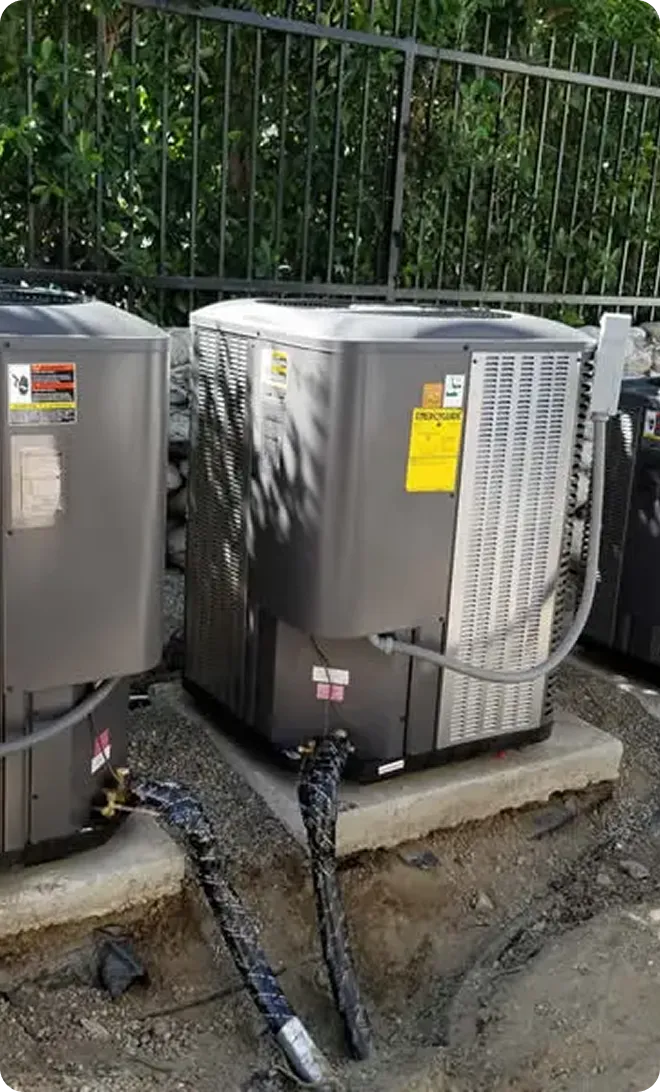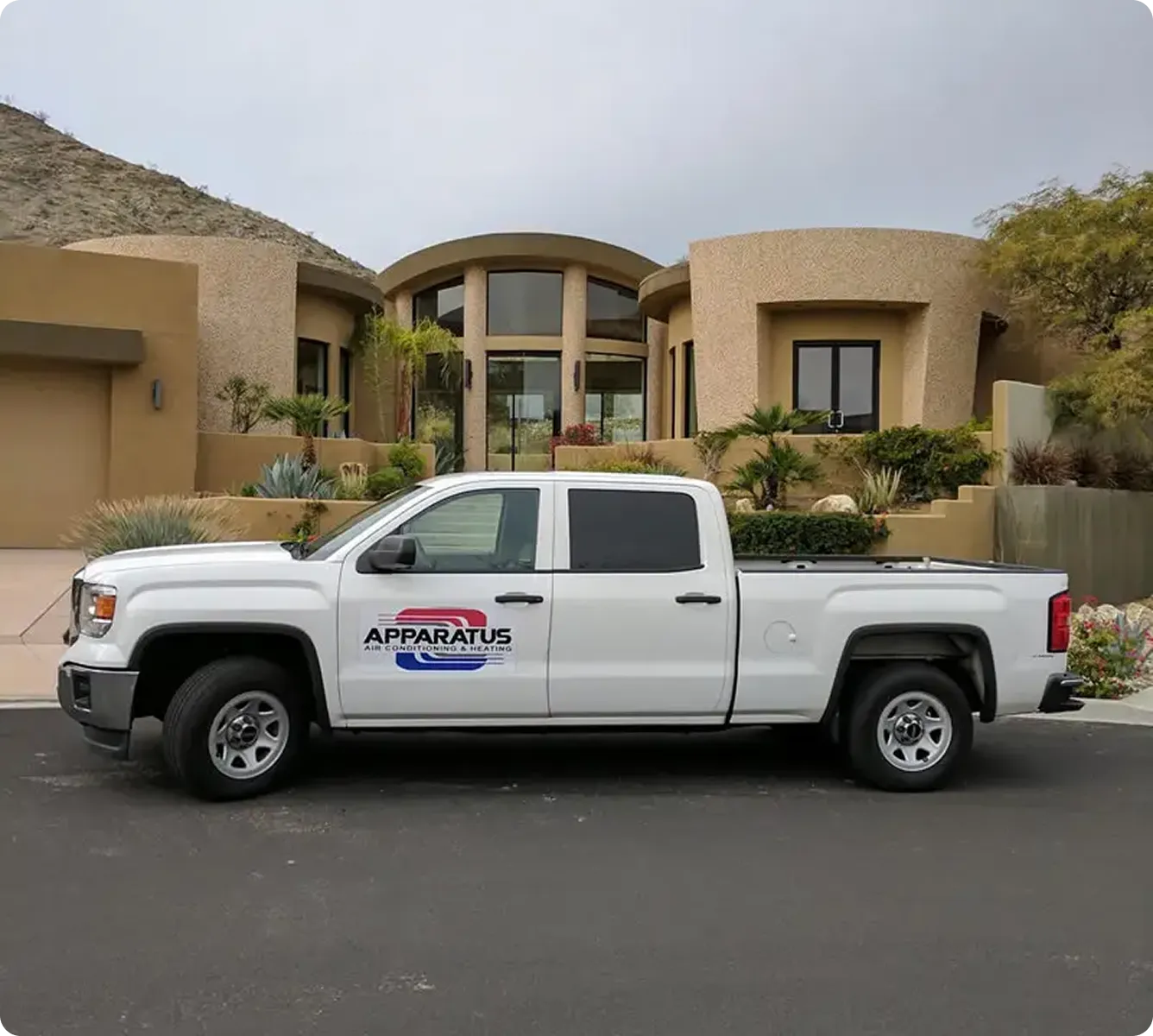
Water Heater Maintenance in Thousand Palms, CA
Water Heater Maintenance in Thousand Palms, CA
Keeping your water heater running reliably and efficiently is essential for comfort and safety in Thousand Palms homes. Routine Water Heater Maintenance in Thousand Palms, CA prevents unexpected failures in the desert climate, extends equipment life, and reduces energy bills by addressing common causes of breakdowns—sediment, corrosion, and thermostat drift—before they become emergencies.
-min.webp)
Why regular water heater maintenance matters in Thousand Palms
Thousand Palms sits in the Coachella Valley where hard, mineral-rich water and hot ambient temperatures accelerate sediment buildup and corrosion inside tanks. Sediment lowers efficiency, causes noisy operation, and can lead to overheating and premature tank failure. For tankless units, mineral scaling reduces flow and recovery performance. Regular, professional maintenance tailored to local water conditions preserves performance and helps avoid costly emergency replacements during the hottest months.
Common water heater issues in Thousand Palms homes
- Sediment and mineral buildup in storage tanks causing reduced capacity and inefficient heating.
- Corroded or depleted anode rods that no longer protect the tank from rust.
- Faulty temperature-pressure relief valves that can stick or leak.
- Thermostat drift leading to incorrect water temperatures and higher energy use.
- Leaks from fittings, drains, or corroded tanks that can cause property damage.
- Mineral scaling in tankless units that reduces flow rates and shortens lifespan.
- Combustion or venting problems on gas heaters that compromise safety and efficiency.
What our routine water heater maintenance program includes
A comprehensive maintenance visit inspects, tests, and services every component that affects performance and safety. Typical tasks include:
- Full system inspection
- Visual check of tank or tankless unit, connections, fittings, and surrounding area for leaks or corrosion.
- Inspection of gas lines, burners, and venting for proper operation on gas units.
- Flushing to remove sediment
- Drain and flush storage tanks to clear accumulated sediment and restore heating efficiency.
- Flush and clean strainers and screens on tankless systems.
- Anode rod inspection and replacement
- Inspect the sacrificial anode rod for depletion and replace when necessary to prevent tank corrosion.
- Thermostat calibration and control checks
- Verify water temperature settings and adjust thermostats for comfort and energy savings.
- Test electronic controls and sensors on modern units.
- Temperature-pressure relief valve testing
- Operate and inspect the TPR valve to ensure it opens and seals properly for safe pressure relief.
- Performance and efficiency testing
- Measure recovery rate, temperature rise, and burner efficiency to identify deterioration.
- For gas units, check flame pattern and combustion characteristics.
- Corrosion prevention and protective measures
- Advise on mobility of magnesium vs. aluminum anodes, insulating blankets, and water-softening considerations for heavy mineral content.
- Leak and safety checks
- Inspect drain pans, piping for corrosion, and electrical connections for safe operation.
- Carbon monoxide check for gas-fired equipment as part of safety diagnostics.
- Maintenance report and recommendations
- Provide a clear summary of condition, suggested repairs or part replacements, and recommended next service interval.
Diagnostic process: what we look for and why it matters
Maintenance begins with a systematic diagnostic to find early warning signs before failure. We measure water temperature stability, listen for sediment-related noises, inspect anode condition visually, and test safety components. For gas systems we inspect burners and test for proper combustion; for electric systems we examine heating elements and wiring. Detecting issues such as a partially failed anode rod or a sticking relief valve lets you prioritize repairs that keep the tank intact and safe.
Suggested maintenance schedule for Thousand Palms homes
- Storage tank heaters: Annual flush and inspection; anode rod inspection every 1 to 3 years depending on water chemistry. Replace anode when 50 percent or more depleted.
- Tankless heaters: Every 6 to 12 months for descaling and filter cleaning in hard-water areas; frequency depends on actual mineral content and household use.
- Gas-fired appliances: Annual combustion and venting inspection plus CO check.
- High-use or older systems: Semiannual inspections may be recommended to manage risk and catch deterioration early.
These intervals reflect the desert water conditions in Thousand Palms where mineral buildup occurs faster than in some other regions.
Benefits of regular water heater maintenance
- Extended equipment life by preventing corrosion and overheating.
- Improved energy efficiency and lower monthly water heating costs through cleaner heat transfer surfaces and calibrated controls.
- Fewer emergency failures and reduced risk of sudden cold-water events or tank ruptures.
- Safer operation, with tested TPR valves and combustion checks on gas units to reduce scalding and CO risk.
- Smarter repair decisions because routine inspections identify small issues before they require major replacements.
Troubleshooting signs that require immediate attention
If you notice any of the following in your Thousand Palms home, prompt inspection is essential:
- Rust-colored water or persistent sediment in hot water.
- Loud popping or rumbling noises from the tank indicating heavy sediment.
- Water pooling around the tank or slow, persistent drips.
- Inconsistent hot water temperatures or unexpectedly high energy bills.
- Unusual odors in hot water or visible corrosion on fittings.
- Any signs of yellow or sooty flames, or a pilot light that will not stay lit on gas heaters.
Addressing these signals early prevents escalation into emergency replacements and reduces the risk of property damage.
Final considerations
In the desert climate of Thousand Palms, preventative maintenance tailored to local water quality is the most reliable way to protect your water heater investment. Routine flushing, timely anode replacement, valve and thermostat checks, and performance testing keep your system safe, efficient, and ready for daily use. Regular service also gives you actionable information about whether repair or replacement is the most cost-effective option as equipment ages.

hear what our satisfied
clients have to say









.webp)